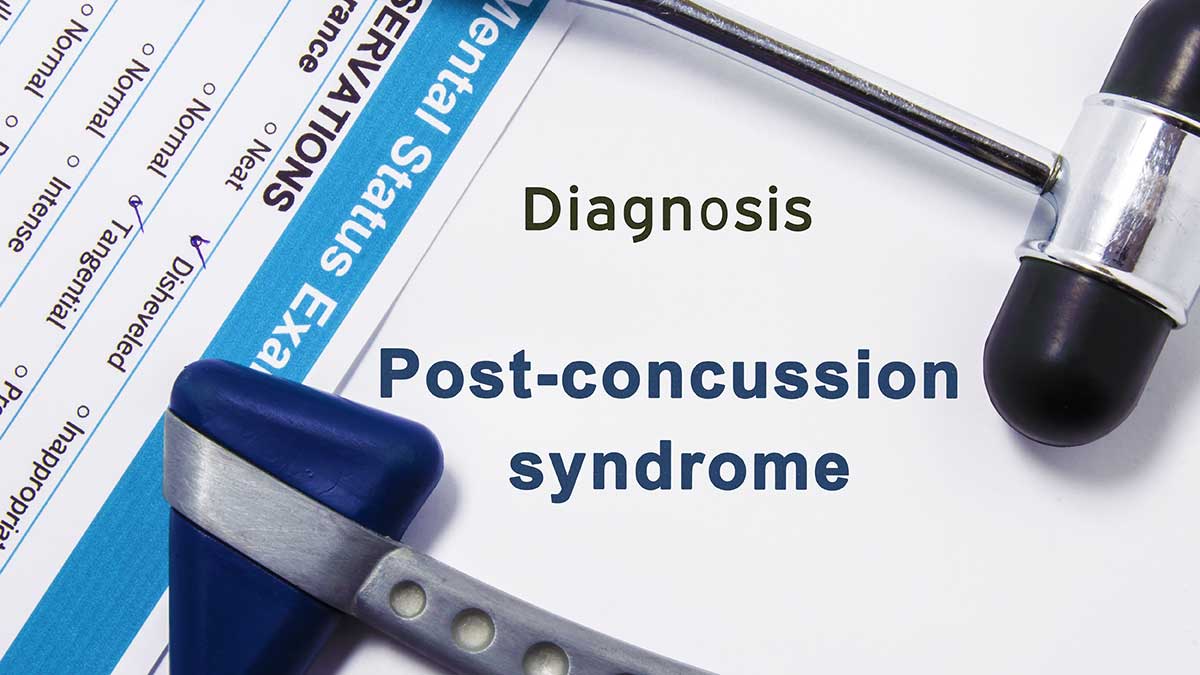Car accidents don’t just cause physical injuries – they can also leave profound mental health effects. A traumatic brain injury (TBI) from a car crash can lead to post-traumatic stress disorder (PTSD), depression, anxiety, and other emotional challenges. Those who survive a TBI often face effects that last for months or even years, including cognitive difficulties and changes in mood or personality. This article breaks down the psychiatric impact of TBI after car accidents in clear terms, covering common conditions like PTSD and depression, and offers insights on coping and recovery.
Car Accidents, TBI, and Mental Health
Motor vehicle accidents are one of the leading causes of TBI, accounting for about 14% of all TBI-related emergency visits, hospitalizations, and deaths in the U.S.. Survivors of a car accident with TBI often face more than just the visible injuries. Beyond headaches or dizziness from the impact, mental health issues after TBI are common. Studies have found that nearly half (and in some analyses, even more) of TBI patients develop a psychiatric disorder in the aftermath of their injury. These post-TBI psychiatric conditions can range from mood disorders to anxiety disorders. Depression is one of the most frequently observed issues – roughly 30% of TBI survivors experience major depression. By comparison, the risk of depression in the general population is about 10%, meaning people with TBI are roughly three times more likely to suffer depression than those without a brain injury.
Another serious concern is PTSD, especially when the brain injury results from a frightening car crash. Research shows that individuals who sustain a TBI in a traumatic event are more likely to develop PTSD than people with similar trauma without a head injury. Estimates vary, but studies have reported anywhere from about 14% up to 50% of civilians with TBI develop PTSD symptoms after their injury. (The wide range reflects different study populations and injury severities.) The intense fear and life-threatening nature of many crashes can trigger classic PTSD symptoms in TBI survivors, even if the person doesn’t recall every detail of the accident. (Notably, experts have found that PTSD can develop even when a brain injury causes memory gaps about the event.)
Equally important, TBIs can cause emotional and personality changes. Damage to specific brain areas may increase irritability, impulsivity, mood swings, or apathy. Family members often notice personality shifts or difficulty with emotional control in a loved one after a severe brain injury. In short, a car accident that causes a TBI can significantly impact mental health, leading to a combination of psychological trauma from the crash and neurological effects from the injury itself.
PTSD After a Car Accident TBI
Experiencing a serious car accident can be psychologically traumatic, and when a TBI occurs simultaneously, it can complicate the picture of post-traumatic stress disorder. PTSD is a condition marked by intrusive memories or flashbacks of the trauma, nightmares, avoidance of reminders of the event, negative changes in mood, and a constant state of being “on edge” (hyperarousal). After a crash, survivors might have nightmares about the collision or feel panicked at the sound of screeching tires. They may avoid driving or even riding in cars due to intense fear. Many symptoms of PTSD overlap with post-concussion symptoms from TBI, which can make diagnosis challenging. For instance, both PTSD and TBI can cause sleep problems, poor concentration, irritability, fatigue, and anxiety. A person with TBI may attribute all these symptoms to their brain injury, while in reality, PTSD might be a contributing factor as well.
It’s important to know that PTSD after a car accident or TBI is treatable. Psychotherapy for trauma, such as cognitive-behavioral therapies that help process memories of the crash, can significantly reduce PTSD symptoms. Encouragingly, evidence shows that patients with TBI respond well to standard PTSD treatments (like exposure therapy or **Cognitive Processing Therapy), doing as well in treatment as those without brain injury. The key is recognizing PTSD symptoms early. If you’ve survived a serious accident and notice signs like flashbacks, panic while driving, or constant jumpiness, talk to a healthcare provider. With proper treatment, many people see their PTSD symptoms improve over time. In fact, research suggests that PTSD rates tend to decline as time passes – one review found about 30% of accident injury survivors had PTSD symptoms in the first month, but around 12–14% had them one year later, indicating that some recover with time and support.
Depression and Anxiety Following TBI
Depression is another common psychiatric outcome after a brain injury. Coping with the aftermath of a crash – pain, medical recovery, potential disability, and life changes – can be emotionally overwhelming. At the same time, the TBI itself may cause changes in brain chemistry and neural pathways that heighten the risk of major depressive disorder. As noted earlier, roughly one in three people with a moderate or severe TBI develop depression in the months following the injury. Even mild TBIs (concussions) carry an increased risk. This depression can surface as persistent sadness, loss of interest in things you used to enjoy, and hopelessness. You might find that you’re sleeping too much or too little, feeling exhausted all day, or withdrawing from friends and family. Below are some common signs of post-TBI depression to watch for:
- Persistent sad or empty mood – feeling down, tearful, or hopeless much of the day.
- Loss of interest in hobbies, social activities, or things that used to bring joy.
- Changes in sleep or appetite – insomnia, oversleeping, and eating too little or too much.
- Low energy and fatigue make it hard to complete everyday tasks.
- Feelings of worthlessness or guilt, and in severe cases, thoughts of death or suicide.
If you notice several of these symptoms lasting more than a couple of weeks after your injury, seeking help is essential. Depression is not a sign of personal weakness or “not trying hard enough”; it is a medical condition that often needs treatment, especially after a TBI. The good news is that treatments for depression are effective for brain injury survivors. Therapies like counseling or psychotherapy (for example, meeting with a psychologist to talk through feelings and develop coping strategies) can significantly improve mood. Doctors also often recommend antidepressant medications, which can help rebalance brain chemicals. Combining therapy and medication is frequently the most effective approach, and both have helped people with depression after TBI. Don’t hesitate to discuss these options with a healthcare provider – getting treatment can significantly speed up your emotional recovery.
It’s also worth mentioning anxiety outside of PTSD. After a TBI, some individuals develop generalized anxiety or panic symptoms – constant worry, tension, or sudden panic attacks. The trauma of the accident can leave you feeling unsafe or easily startled. You might experience fear of driving or traveling in cars (sometimes called vehophobia), which is a form of accident-related anxiety. Others have heightened social anxiety or stress in situations that never bothered them before. These anxiety symptoms often go hand-in-hand with depression or PTSD. Like the other conditions, anxiety disorders after TBI are treatable with therapy (such as cognitive-behavioral techniques to manage worry and panic) and, if needed, medications to reduce anxiety. Recognizing the problem is the first step to getting relief.
Coping with the Psychological Effects of TBI
Facing PTSD, depression, or other mental health issues after a car accident and TBI can be daunting, but there is hope and help available. Both medical professionals and TBI experts stress the importance of addressing psychiatric effects as part of the overall recovery. Routine mental health screenings for conditions like depression and anxiety are recommended in TBI care. Here are some steps for coping and recovery that can help survivors and their families manage the psychiatric impact of TBI:
- Seek professional help early: Don’t wait to “tough it out.” If you suspect PTSD, depression, or severe anxiety, reach out to a psychologist, psychiatrist, or counselor who understands brain injury. Early intervention – even just an evaluation – can lead to faster improvement.
- Follow through with treatment: Consistently attending therapy sessions or taking prescribed medications can significantly reduce symptoms over time. Many TBI survivors find relief through trauma-focused therapy for PTSD or antidepressants for mood symptoms, enabling them to regain a sense of normalcy.
- Lean on support networks: Family and friends’ support is crucial. Talk to your loved ones about what you’re feeling—flashbacks, frustration, or sadness. Consider joining a support group for brain injury survivors or accident trauma survivors, where you can share experiences and coping tips with people who’ve been through similar struggles.
- Practice self-care and patience: Recovering mentally after a TBI is often a gradual process. It helps to maintain healthy routines – try to get adequate sleep, eat nutritious meals, and engage in light exercise or physical therapy as recommended (exercise can boost mood, but follow your doctor’s guidance post-injury). Relaxation techniques like deep breathing, meditation, or gentle yoga can ease anxiety. Be patient and kind to yourself on days when progress feels slow. Remember that healing takes time, but with the proper support, you can continue to improve.
Lastly, never underestimate the resilience of the human brain and spirit. Many individuals who suffer TBIs in car accidents go on to lead fulfilling lives, successfully managing or overcoming the psychiatric challenges they faced early on. The journey may be tough, but with proper treatment and support, the mental health impact of a car accident TBI can be addressed. If you or someone you love is dealing with these aftereffects, know that you’re not alone – help is available, and brighter days can be ahead with recovery.

